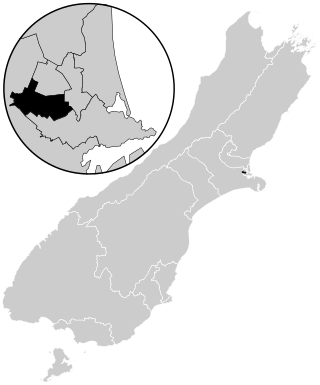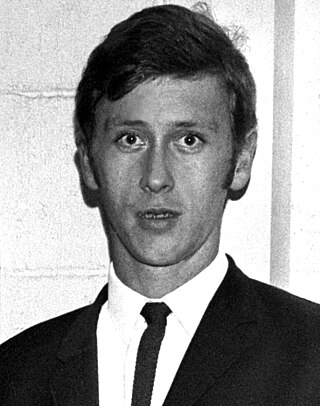
The 1984 New Zealand general election was a nationwide vote to determine the composition of the 41st New Zealand Parliament. It marked the beginning of the Fourth Labour Government, with David Lange's Labour Party defeating the long-serving Prime Minister, Robert Muldoon, of the National Party. It was also the last election in which the Social Credit Party won seats as an independent entity. The election was also the only one in which the New Zealand Party, a protest party, played any substantial role.

The 1978 New Zealand general election was a nationwide vote to elect the 39th New Zealand Parliament. It saw the governing National Party, led by Robert Muldoon, retain office, but the opposition Labour Party won the largest share of the vote. Reorganisation of the enrolment system caused major problems with the electoral rolls, which left a legacy of unreliable information about voting levels in this election.

The 1972 New Zealand general election was held on 25 November to elect MPs to the 37th session of the New Zealand Parliament. The Labour Party, led by Norman Kirk, defeated the governing National Party.

The 1954 New Zealand general election was a nationwide vote to determine the shape of the New Zealand Parliament's 31st term. It saw the governing National Party remain in office, but with a slightly reduced majority. It also saw the debut of the new Social Credit Party, which won more than eleven percent of the vote but failed to win a seat.
The Christchurch Central by-election of 1979 was a by-election during the 39th New Zealand Parliament. It was prompted by the death of Bruce Barclay, a Labour Party MP, and resulted in Geoffrey Palmer, also of the Labour Party, being elected to replace him for the seat of Christchurch Central. Palmer would eventually go on to become Prime Minister. The by-election was somewhat embarrassing for the National Party, whose candidate was pushed into third place by Social Credit's Terry Heffernan.

Wigram is a New Zealand parliamentary electorate, returning one Member of Parliament to the New Zealand House of Representatives. The current MP for Wigram is Megan Woods of the Labour Party. She took over this position from Jim Anderton, who had held this position from 1996 until 2011.

Thomas Malcolm McGuigan was a New Zealand politician of the Labour Party.

Angus McLagan was a New Zealand politician of the Labour Party. He was a member of the Legislative Council and later Member of Parliament for Riccarton. He was a cabinet minister from 1942 to 1949 in the First Labour Government.
Yaldhurst is a former New Zealand parliamentary electorate, near the city of Christchurch. The electorate was to the southwest of Christchurch, and was suburban and semi-rural.

Wilfrid Barry Owen was a New Zealand politician and the first leader (1953–1958) of New Zealand's Social Credit Party.

The 31st New Zealand Parliament was a term of the New Zealand Parliament. It was elected at the 1954 general election on 13 November of that year.

The Sydenham by-election 1974 was a by-election held in the Sydenham electorate during the term of the 37th New Zealand Parliament on 2 November 1974. Eight candidates stood in total.

The 1954 Onslow by-election was a by-election for the electorate of Onslow during the 30th New Zealand Parliament. It resulted from the death of the Labour Member of Parliament Harry Combs on 12 June 1954.
The 1954 Patea by election was held on 31 July during the 30th New Zealand Parliament, and was caused by the resignation of incumbent National MP, William Sheat.
The 1967 Petone by-election was a by-election for the electorate of Petone on 15 April 1967 during the 35th New Zealand Parliament. The by-election resulted from the death of the previous member the Hon Mick Moohan on 7 February 1967. The by-election was won by Fraser Colman, also of the Labour Party.

The Mangere by-election of 1977 was a by-election for the electorate of Mangere on 26 March 1977 during the 38th New Zealand Parliament. The by-election resulted from the resignation of the previous member Colin Moyle after accusations against him in parliament, and he was replaced by David Lange, also of the Labour Party. Apart from Lange, there were seven other candidates in the by-election.

The Fendalton by-election of 1967 was a by-election for the electorate of Fendalton on 15 April 1967 during the 35th New Zealand Parliament.
The Grey Lynn by-election 1963 was a by-election held in the Grey Lynn electorate in Auckland during the term of the 33rd New Zealand Parliament, on 18 May 1963.

The Hamilton by-election 1959 was a by-election held in the Hamilton electorate in Hamilton in the Waikato during the term of the 32nd New Zealand Parliament, on 2 May 1959.
The New Zealand Liberal Federation was a laissez-faire Liberal Party that was formed to stand electoral candidates in the mid-1950s.
















